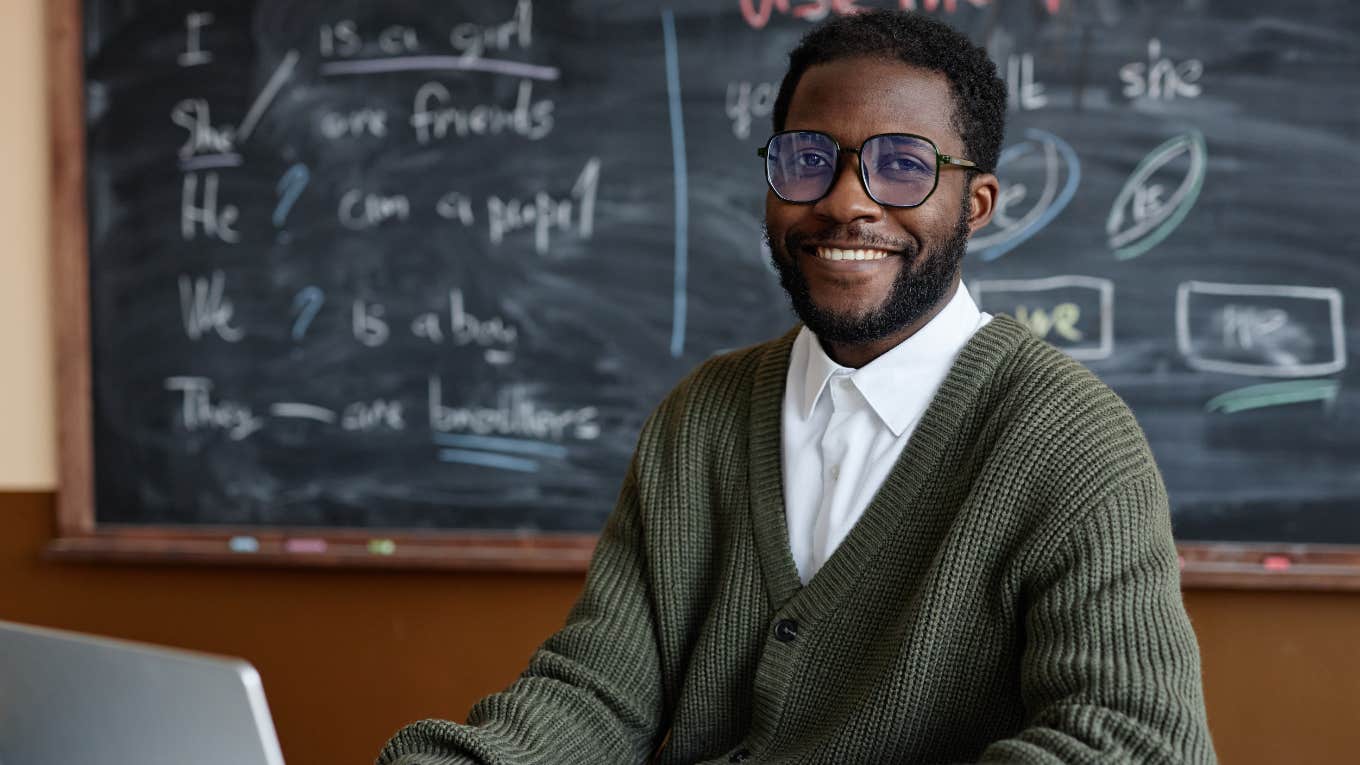Teacher Feels 'Validated' When His Wife Complains About The 'Learned Helplessness' Of New Hires At Her Company—'I Told You So'
At some point it was going to start affecting the productivity of companies.
 AnnaStills | Shutterstock
AnnaStills | Shutterstock Instead of learning how to complete tasks on their own, many children in school today are honing their learned helplessness. Helicopter parenting is often to blame. As Verywellmind noted, "When children are not allowed to try things independently, they may develop a poor sense of personal agency. Instead of trying, they believe that they are unable to do things and do not put forth any effort."
One man has known this parenting style would lead to negative consequences down the road.
Posting to the subreddit for teachers, a veteran teacher of 22 years admitted he felt validated after his wife complained about the "learned helplessness" of new hires at her company.
After his wife complained about the learned helplessness of new hires, this teacher couldn't help but feel validated.
The anonymous Redditor's wife has worked in management for the last 18 years but has little control over who gets hired. Although, it's known they mostly recruit from the Ivies and tech universities.
Six years ago, she noticed the new hires weren't up to par with what was usually expected of employees, but three years ago, their quality really went down. "Half of these new hires are like having a negative employee; they add more work to the queue than they subtract," she complained to her husband.
 aliaksandrbarysenka | Canva Pro
aliaksandrbarysenka | Canva Pro
All the managers at the company have complained about these new hires who can barely do their jobs, let alone behave like "normal functioning adults."
"I've been telling anyone who would listen, for the last 15 years, that the learned helplessness and cluelessness that I'm seeing with my middle school students is going to be a problem for them when they get into the workforce," the teacher said.
The learned helplessness at schools is getting out of hand, and it will affect students down the road.
According to Psychology Today, learned helplessness refers to when someone faces a negative circumstance and fails to overcome it repeatedly, leading them to believe they have no control over the situation even though they do.
Many children are being provided with all the tools they need to learn but still expect everything to be done for them. This can negatively affect them in the long run, as can be seen from the new hires at the company of the anonymous Redditor's wife.
They continue to carry this learned helplessness into adulthood without trying to break free or attempting to do things on their own. They expect to constantly be accommodated, and when they aren't, they simply give up.
According to Medical News Today, learned helplessness may affect work responsibilities and psychological well-being, and it can be linked with low self-esteem, passivity, and decreased motivation.
There are ways to combat learned helplessness in children.
Teachers across the internet have shared some of their tips to combat learned helplessness. Content creator and teacher Laura shared that one of the methods that worked best for her was displaying explicit directions on the board so students could refer back to them.
It was also so that if a student asked her what to do, she could, in turn, ask them where they could look to figure that out. It gave the kids an opportunity to problem-solve on their own with a simple nudge in the right direction.
Another method was shared by @just_leeny_borg3 called the "give me three" rule. She explained that when a child claims they don't know how to do something or can't do it themselves, you give them three attempts before stepping in.
Just try your best three times, and you can receive help after that. This makes kids try to do things by themselves and helps them to gain confidence in their own abilities.
Ultimately, teachers and parents have to be willing to let kids figure things out on their own and not do things for them, or else they will continue their learned helplessness into adulthood, which will impede them in their lives.
Sahlah Syeda is a writer for YourTango who covers entertainment, news, and human interest topics.
